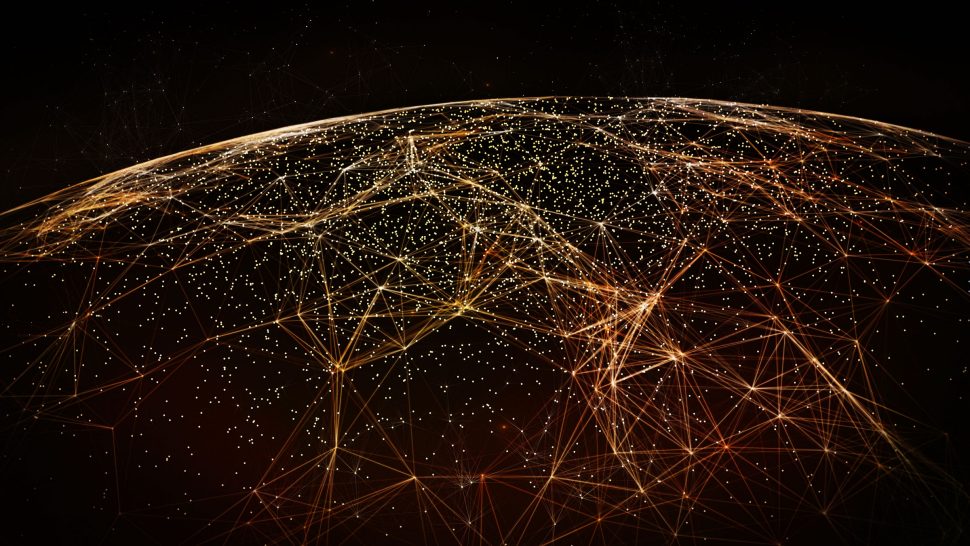World without borders

Australia Post’s recent research into digital identity, in collaboration with the Boston Consulting Group (BCG), found that our identity verification processes and protocols have failed to keep pace with the expectations and needs of a digital age.
Consumers and business owners told us they’re frustrated – and when trust is difficult to establish online, they’re reluctant to transact through digital channels.
“These identity challenges are not unique to Australia,” explains Rebecca Russell, Principal with BCG. “We see them playing out all over the world, and exacerbated by a global digitisation agenda.”
Single digital identity solutions are already in place or underway in many countries – so what can we learn from their experiences so far?
Mandated uptake delivers scale
“The notion of a single, federated ecosystem for identity is not new, but it requires participation from the market and uptake from consumers. And this needs to happen at scale to unlock friction in the economy,” says Russell.
When governments mandate the use of a single identity platform, they can achieve immediate efficiency gains in service delivery and encourage private sector adoption. However, they also need to establish trust that consumers can control who has access to their personal information.
Estonia’s mandatory electronic ID card is required to access government services, but its open platform has encouraged public and private participation. It can be used as a travel document within the EU, and as proof of ID for online banking, for prepaid transport tickets, eVoting and digital signatures.
Around 94 per cent of Estonia’s 1.3million residents have an active ID card. “Almost one in three election votes are now completed online, and 95 per cent of medication is bought with a digital prescription,” comments Cameron Gough, Australia Post’s General Manager - Digital ID and DDC.
Positive private / public partnerships are essential
In the UK, the Gov.uk Verify ID assurance platform enables citizens to prove their identity once to access an increasing number of government online services. They can even select their preferred verification provider from a certified company list, such as Royal Mail, Experian or Verizon.
To meet such a diverse range of user needs, Gov.uk worked with industry through the Open Identity Exchange (OIX). Local councils are now piloting the platform to issue concessionary travel passes and residential parking permits, with plans to extend into health and social services.
Aadhaar Cards are not mandatory in India – but as many as 95 per cent of Indian adults now have one – by March 2016, 990million had been issued, making it the largest biometric database in the world.
The Unique Identification Authority of India was established as a dedicated and independent agency to encourage uptake. According to a recent online article, it is now discussing options for private sector usage – such as online banking or cash on delivery transactions.
In Sweden and Norway, BankID’s uptake was driven by increasing convenience for consumers when more private and public providers jumped on board – from banks to telecommunications and government departments.
Open, multi-player ecosystems can adapt quickly
“In terms of global trends in identity management, we’re seeing a shift from closed to open systems. There is less emphasis on proprietary systems and greater cross-jurisdiction, borderless environments,” says Mike Schwartz, Managing Director, BCG Digital Ventures.
In Canada, the DIACC (Digital ID & Authentication Council of Canada) is a partnership of public and private sector leaders, working together to create a robust digital identification and authentication ecosystem that can connect Canadians online – and create new ways of interacting around the world.
Europe is also working towards a ‘Digital Single Market’, having adopted the eIDAS Regulation in 2014. Recognising that online identification will enable secure cross-border digital transactions, it allows people and businesses to use their national electronic identification schemes (eIDs) to access public services in other EU countries.
For high value transactions, biometric eSignature verification can enable businesses to be certain of the identity of the person they are dealing with.
Towards a global identity infrastructure
“Identity is the currency for participation in life, which is increasingly pinned to the credibility of your identity,” claims BCG’s Schwartz. “But in a hyper-connected digital world, it’s also increasingly at risk.”
Globally, the cost of identity fraud was estimated at US$5billion per year in 2014. This year, Australia alone estimates the cost of identity crime as more than $1.6billion – and that doesn’t include the cost of organised crime enabled by identity theft.
“You can hold physical identity documents in your wallet and control who sees them”, comments Gough. “But online, you can't be sure who’s using it. We found, through our research, that the convenience consumers want will also make it very convenient for fraudsters to use that information."
"Plus, they could be half a world away and outside jurisdiction laws.”
Businesses and individuals are struggling with this friction. But, if we can solve this challenge there is the potential to make significant savings – through reduced cost and time to serve, reduced cost of fraud and improved user experience.
“When we think about the size of the opportunity globally it’s significant. In Australia alone, it’s upwards of $11billion of economic impact that is currently not accessible because of our paper-based identity systems,” says BCG’s Russell.
Russell believes that putting consumers at the centre of the solution is key. “Through our research, we know they want to be in control of their identity and how it’s shared and managed. We think this will be quite critical to enabling a single digital solution to take off in Australia.”
Andrew Walduck, Australia Post’s Executive General Manager - Trusted eCommerce Solutions, agrees. “We know from the work we’ve done, that what makes a difference is helping our customers feel in control of how their identity information is used."
"We need an approach that ensures they can verify themselves once and be able to re-use that identity simply, easily and transparently.”
As governments and organisations around the world work towards their own solution, it’s also important to consider the potential for a truly borderless experience of identity.
Where there is no difference in the process of applying for a bank account in the US, Germany or Australia, where the biometric data in your body becomes your passport to travel.
“We see postal organisations in different countries playing a strong leadership role to create a global identity ecosystem,” says Russell. “This will require strong governance, sophisticated and secure technology, and strong bilateral relationships – but it could result in a global economy with less friction.”
To find out more about our research into Australia’s digital identity, read our white paper, A frictionless future for identity management.
1 GDS targets 2017 launch for GOV.UK Verify health and social care work, Oct 2016
2 e-Signatures & eIDAS - what you need to know, SC Magazine Oct 2016
3 Microsoft survey on 10,000 consumers, Feb 2014
This article is provided for general information purposes only and is not intended to be specific advice.
